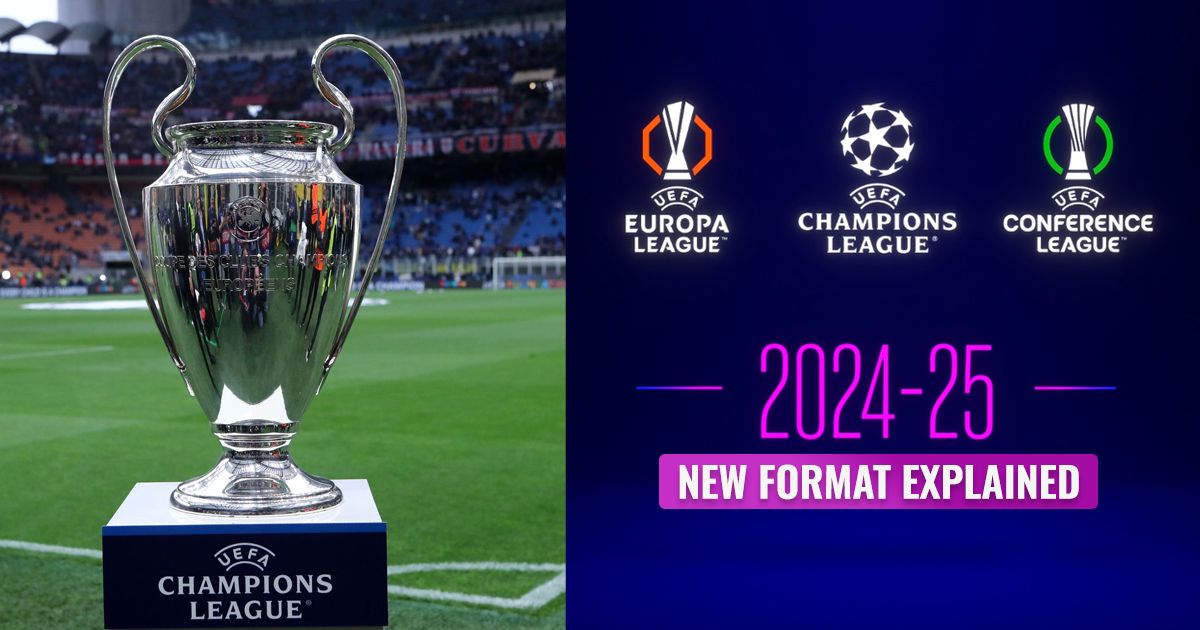The New Champions League Format: What Fans Should Know
For years, the UEFA Champions League has been the

For years, the UEFA Champions League has been the pinnacle of club football, a competition that has captivated audiences worldwide with its blend of skill, drama, and high-stakes encounters. However, as the game continues to evolve, so too must the tournament that showcases the best of European football. With this in mind, UEFA has unveiled a comprehensive overhaul of the Champions League format, set to take effect from the 2024/25 season onwards. This bold move promises to reshape the landscape of continental club football, potentially ushering in a new era of excitement and competitiveness.
The Swiss Model: A Radical Departure
At the heart of the new Champions League format lies the adoption of the much-discussed 'Swiss Model', a radical departure from the traditional group stage format that has been in place for decades. Under this innovative system, teams will compete in a single league table, playing against opponents of varying strengths throughout 10 matchdays.
The Swiss Model promises to inject an added layer of unpredictability and excitement into the competition, as teams will no longer have the luxury of coasting through a relatively straightforward group stage. Instead, every match will take on heightened significance, with the potential for major upsets and dramatic twists and turns throughout the campaign.
More Games, More Drama
One of the most significant changes under the new format is the increase in the number of matches played. In the current setup, teams play a minimum of six group-stage games before progressing to the knockout rounds. However, the revamped format will see each team play at least 10 matches in the initial league phase, with the top eight sides advancing directly to the Round of 16.
This increase in fixtures promises to provide fans with a more immersive and action-packed Champions League experience, with more opportunities to witness their favourite teams in action against a diverse array of opponents. Additionally, the extended league phase could potentially lead to more dramatic finales, with teams battling it out until the final matchday to secure their place in the knockout rounds. Ticket Compare can help you find cheap football tickets for Champions League games in this new era. They compare trusted sellers to get you the best deal out there.
Expanded Qualification Opportunities
Another significant change under the new format is the expansion of qualification opportunities for teams from across Europe. The current system, which sees the top four leagues (Premier League, La Liga, Bundesliga, and Serie A) awarded four guaranteed spots each, has long been criticised for favouring the established elite at the expense of emerging forces.
However, the new format aims to address this imbalance by introducing two additional qualification spots, awarded based on a club's historical performance in European competitions. This move could potentially open the door for clubs from less prominent leagues to stake their claim in the Champions League, injecting fresh blood and new narratives into the competition.
The Coefficients Conundrum
While the expanded qualification opportunities have been widely welcomed, there are concerns regarding the criteria for determining which clubs will receive these coveted spots. The proposed system relies heavily on UEFA's club coefficients, a complex ranking system that factors in a team's performance in European competitions over five years.
Critics have argued that this approach could further entrench the dominance of the established elite, as teams from the top leagues are likely to accumulate higher coefficients due to their regular participation in the Champions League and Europa League. However, UEFA has countered these concerns by emphasising the meritocratic nature of the system, which rewards consistent performance on the continental stage.
The Battle For Broadcast Riches
While the changes to the Champions League format have captured the imagination of fans and pundits alike, it is important to acknowledge the financial motivations that underpin this radical overhaul. The Champions League is a lucrative commercial enterprise, generating billions in revenue through broadcasting rights, sponsorship deals, and matchday income.
By expanding the competition and introducing more high-profile fixtures, UEFA aims to enhance the tournament's appeal to broadcasters and sponsors, potentially driving up the value of future rights packages. However, this pursuit of commercial success must be balanced against the need to preserve the sporting integrity and competitiveness of the competition, ensuring that it remains a true celebration of footballing excellence.
Safeguarding The Domestic Game
As the Champions League continues to grow in stature and financial clout, concerns have been raised about its potential impact on domestic leagues and cup competitions. With an increased number of midweek fixtures, there are fears that the demands placed on players could lead to burnout, injury risks, and a dilution of quality in domestic competitions.
To address these concerns, UEFA has emphasised the need for a collaborative approach, working closely with national associations and clubs to strike the right balance between continental and domestic commitments. This may involve revisiting fixture schedules, enforcing stricter rotation policies, and exploring innovative solutions to manage player workloads effectively.
The Future Of European Club Football
While the new Champions League format has garnered widespread attention and debate, it is important to recognise that this is merely the first step in a broader evolution of European club football. UEFA has ambitious plans to further enhance the competitiveness and appeal of its club competitions, with discussions ongoing regarding the potential introduction of a third-tier tournament and the possibility of cross-competition playoffs.
Additionally, the growth of emerging footballing markets, such as the United States and China, presents both opportunities and challenges for UEFA. As the appetite for European club football continues to grow globally, the governing body must navigate the delicate balance between capitalising on new revenue streams and preserving the traditional values and authenticity that have made the Champions League a beloved institution.
A Commitment To Tradition And Innovation
While the new Champions League format represents a bold step into the future, it is important to recognise UEFA's commitment to preserving the competition's rich history and traditions. From the iconic anthem that heralds the start of each match to the coveted trophy that every player dreams of lifting, the Champions League has woven itself into the fabric of European football culture.
As the tournament evolves and adapts to the changing landscape of the game, UEFA must strike a delicate balance between embracing innovation and safeguarding the essence that has made the Champions League a beloved institution. By honouring the past while boldly forging into the future, the governing body can ensure that the competition remains a cherished spectacle for generations to come.
The Future Is Bright
As the countdown to the 2024/25 season begins, the anticipation surrounding the new Champions League format is palpable. Real Madrid may still be celebrating their win, but fans, players, and officials alike are eagerly awaiting the dawn of a new era in European club football, one that promises to deliver more drama, more excitement, and more unforgettable moments than ever before.
While the changes may be met with scepticism and debate, there is no denying the potential for the new format to elevate the Champions League to new heights, cementing its status as the premier club competition in world football. As the world's attention turns to the hallowed pitches of Europe, one thing is certain: the future of the beautiful game is bright, and the new Champions League format is poised to be a shining beacon of excellence, innovation, and the enduring spirit of competition.







